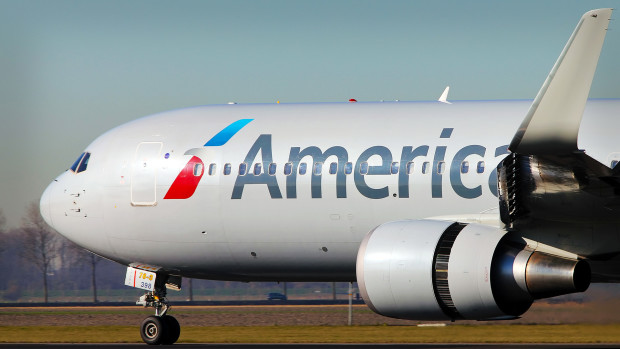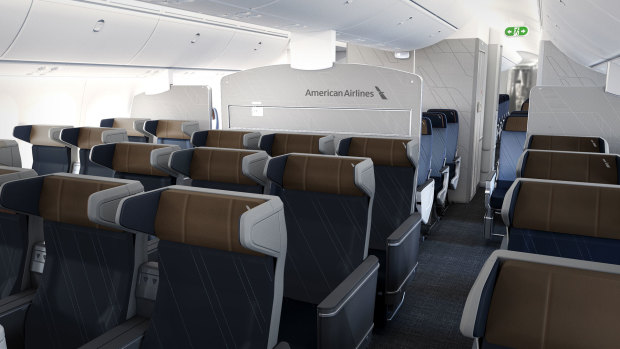
When people buy tickets for specific seats on an airline, most assume that the purchase entitles them to those seats.
That's the basic agreement between an airline and you when you fork over money for a specific spot or spots on the plane.
But in fact not every airline does it that way and not every fare includes a specific seat. Southwest Airlines (LUV) -), for example, has open seating. In addition, lower-cost airlines, and even full-fare ones, sell classes of tickets that don't come with assigned seats.
DON'T MISS: Mother suing American Airlines over treatment of her twin infants explains why
In a case, however, where as part of the ticket-purchase process you select a certain seat, you figure you're paying for access to the seat (or seats) in question. That's the method for tickets to concerts, Broadway shows, and any other form of entertainment or travel that involves assigned seats.
These rules seem ingrained in society. American Airlines, (AAL) -) however, does not play by them, according to a new lawsuit.

Image source: American Airlines
Here's why American Airlines is being sued
A mother was flying with her 18-month-old twins between Portland and Dallas. She had planned to have one child ride on her lap (which does not cost extra) and she purchased a seat for the other, One Mile at a Time reported.
Before the flight, the mother (Erika) checked American Airlines' policy, which says that an infant can occupy a seat without a car seat, as long as the child is able to sit upright without assistance:
If your infant will travel in their own seat, you must buy a ticket. The infant must either travel in a safety seat approved by the Federal Aviation Administration (FAA) or be able to sit upright in their seat without assistance and have their seatbelt securely fastened during taxi, takeoff, landing and whenever the ‘fasten seatbelt’ sign is on.
Erika had checked both her car seats, as her children met the standard for being able to sit upright without a safety seat. On the two-legged journey, the family completed the first part without a problem.
"Upon boarding the second flight, Erika claims that the flight attendant kept telling her that it was [a Federal Aviation Administration] and American Airlines policy to not allow an infant under the age of two to occupy their own seat without a car seat," the website reported. "The argument wasn’t that the infant was unable to sit upright and keep her seat belt fastened, but rather that this was just a blanket violation of regulations."
The flight attendant threatened to throw the family off the plane, but a woman sitting behind Erika offered to take one of the children on her lap for the duration of the flight.
That. however, is not why the airline is being sued.
Erika is suing American because the airline refused to refund the ticket she was not allowed to use due to the flight attendant not knowing American Airlines' policy.
American has an unusual defense.
Why Is American Airlines refusing a refund?
In its response to the lawsuit, American Air is arguing that a ticket on the airline requires it only to transport a passenger to the destination, not to provide the passenger a seat. It cites its contract of carriage to justify its actions.
Plaintiff offers no facts to support any language within the CoC supporting her claim for breach of contract by American, and there is nothing in the governing contract that requires American to do anything beyond transport a passenger from one place to another on the date and time of the ticket. Even the seat assignment of a passenger is not guaranteed under the contract.
The airline also defends its flight attendant for not knowing its policy.
Conversely, the contract states that American may refuse to transport a passenger if the passenger’s 'physical or mental condition is such that in American’s sole opinion' the passenger is rendered or likely to be rendered incapable of…complying with safety instructions without the assistance of an attendant.
...Had the flight attendant concluded in its sole opinion that the infant was not capable of complying with the safety instructions as outlined in the contract that required the infant to remain sitting up and with its seatbelt fastened for take off, landing, and anytime the ‘fasten seat belt’ sign was on, she would have been doing so consistent with the terms of the contract.
American Airlines has not yet responded to two requests from TheStreet reporter Jeff Quiggle for comment on the incident.
Get investment guidance from trusted portfolio managers without the management fees. Sign up for Action Alerts PLUS now.







